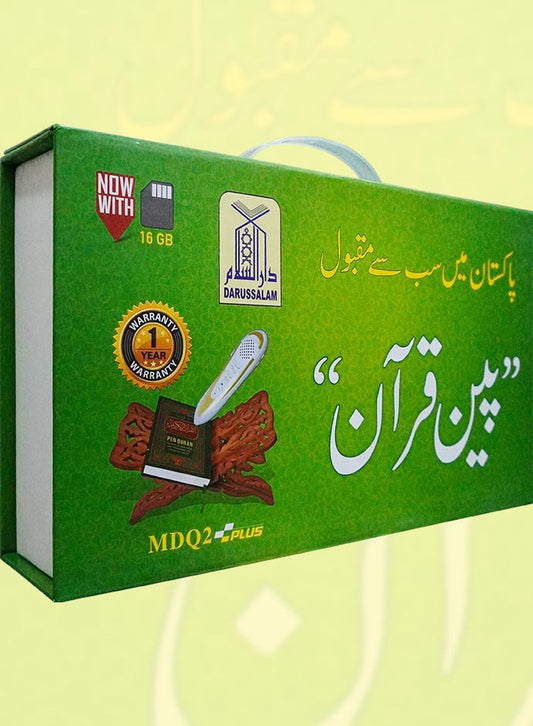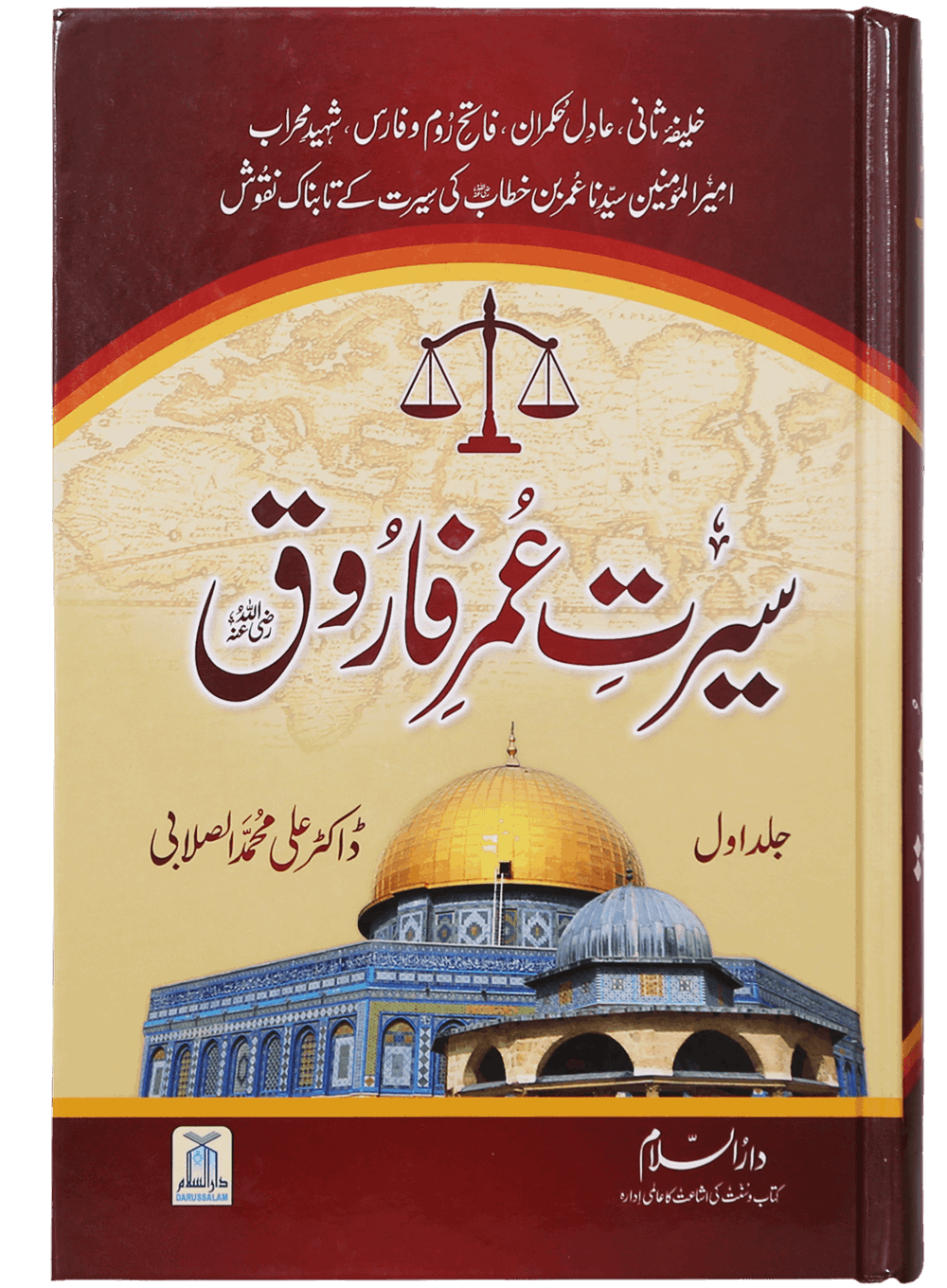
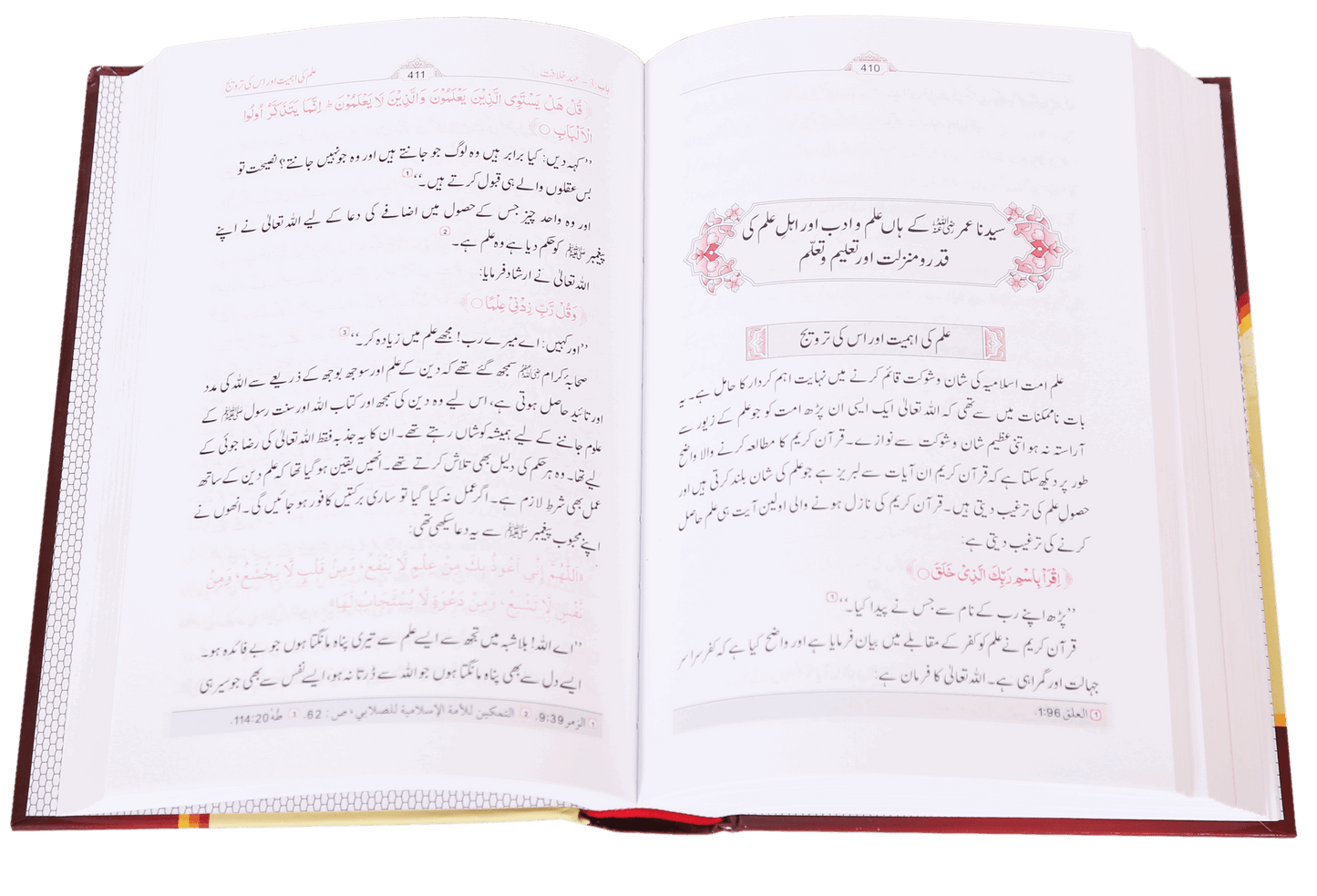
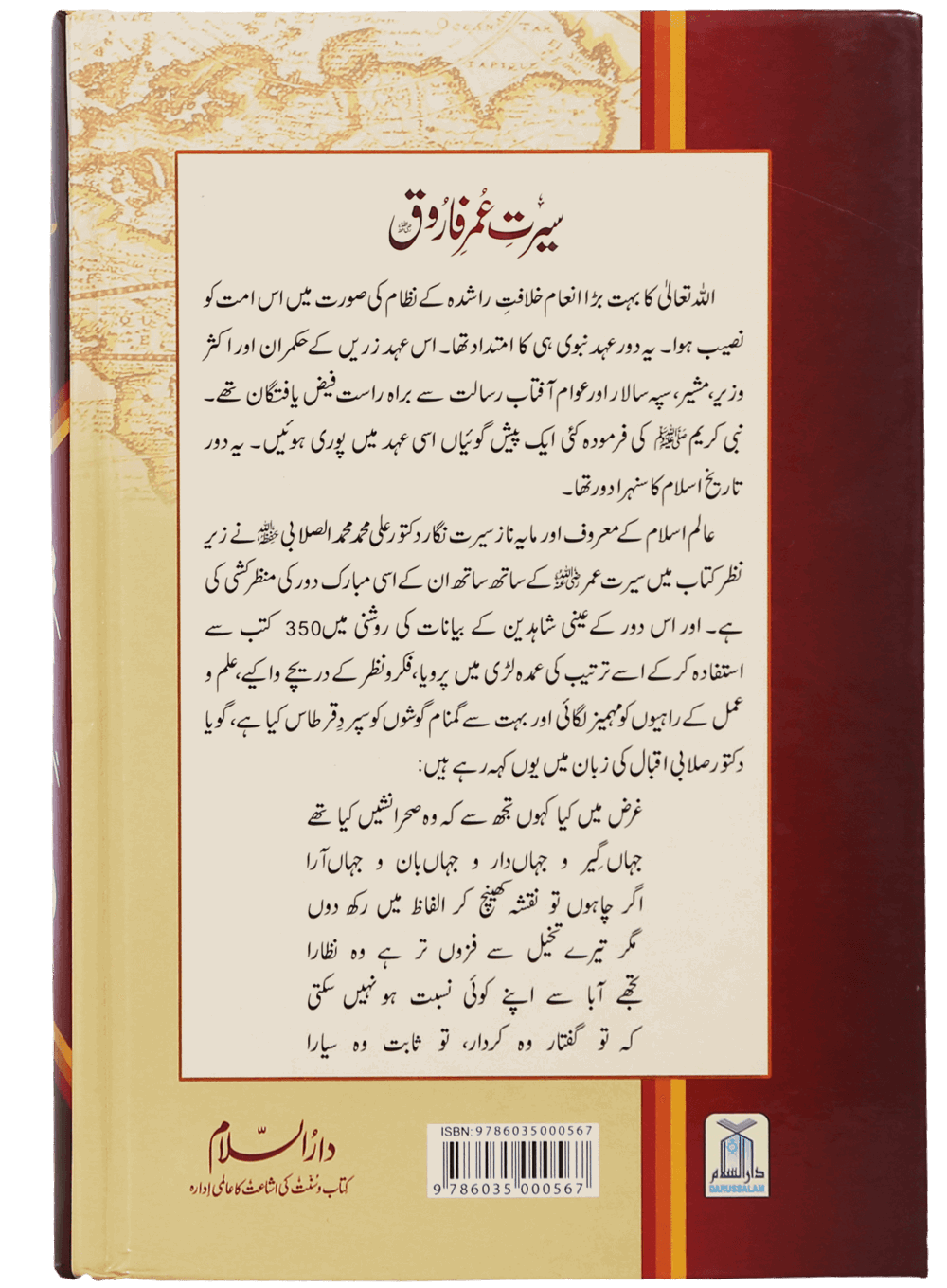
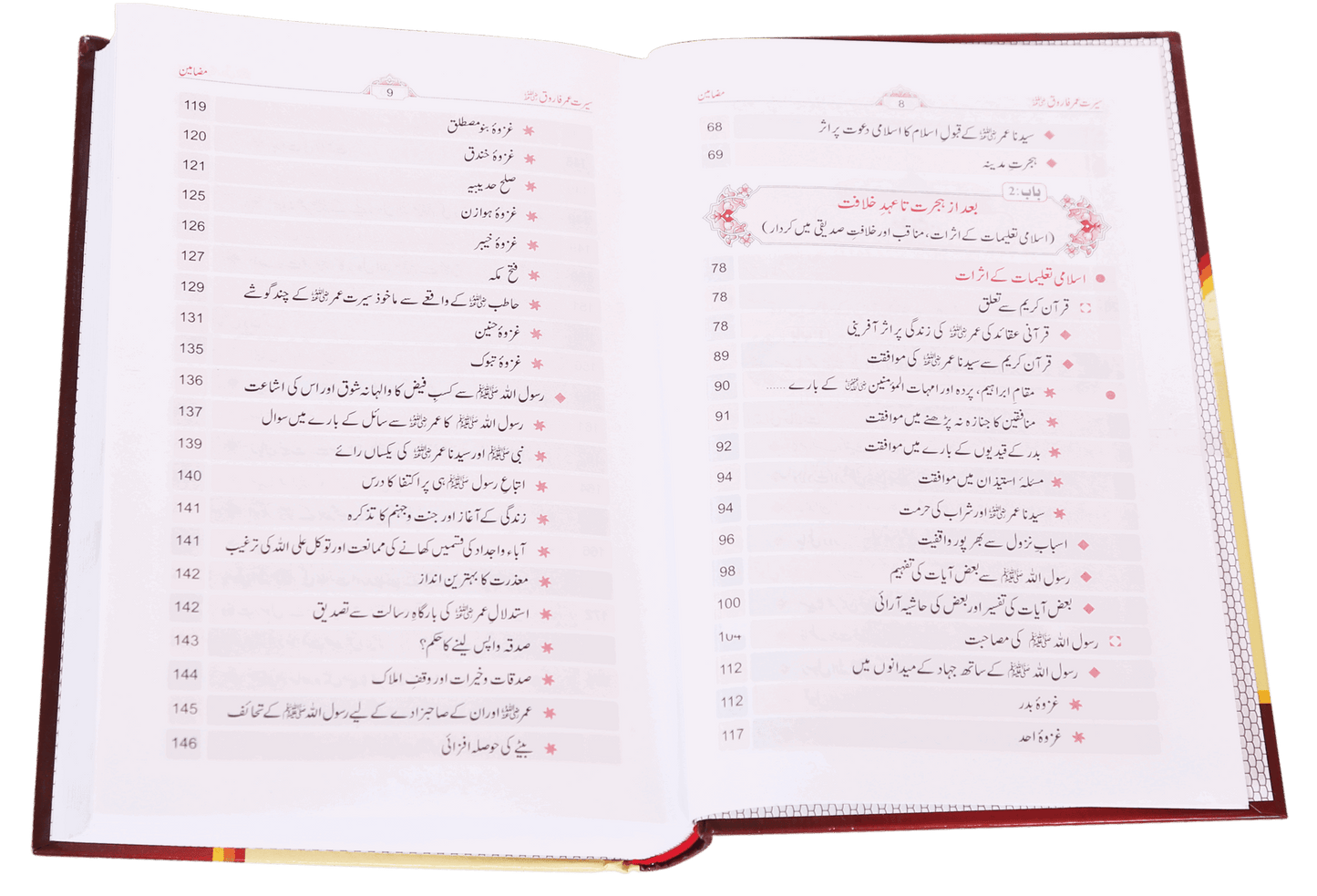
This book tells the true life story of Hazrat Umar bin Al-Khattab (R.A.), the second Caliph of Islam, in an easy way to read and understand. It covers his life before Islam, his acceptance of Islam, his close friendship with the Prophet (PBUH), the Hijrah journey, his role as Caliph, his administrative reforms, and the spread of Islam. It shows his character, leadership, and contributions to justice and society. Everything is taken from authentic sources, no made-up parts. Written by Dr. Ali Muhammad Al-Sallabi.
1,264 pages. 14x21 cm hardcover, 2-color print. Clear Urdu text with good layout. Perfect for ages 12 and up.
Parents and teachers love it because:
-
Full story from start to end
-
Teaches faith, leadership, justice, and reforms
-
Good page quality and strong binding
Best simple biography of Umar Farooq (R.A.) in Urdu. Great for classroom, madrasah, or home study.
Darussalam authentic biography series. Order today.

